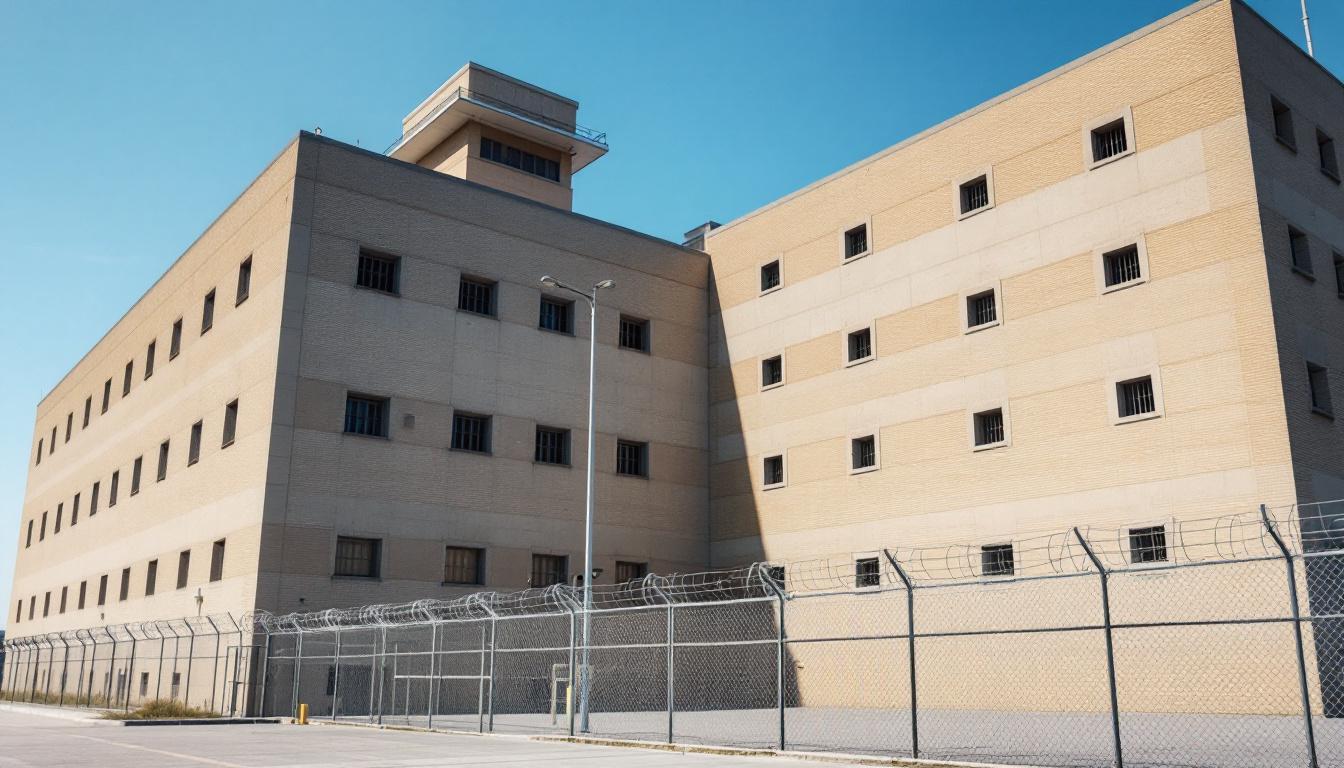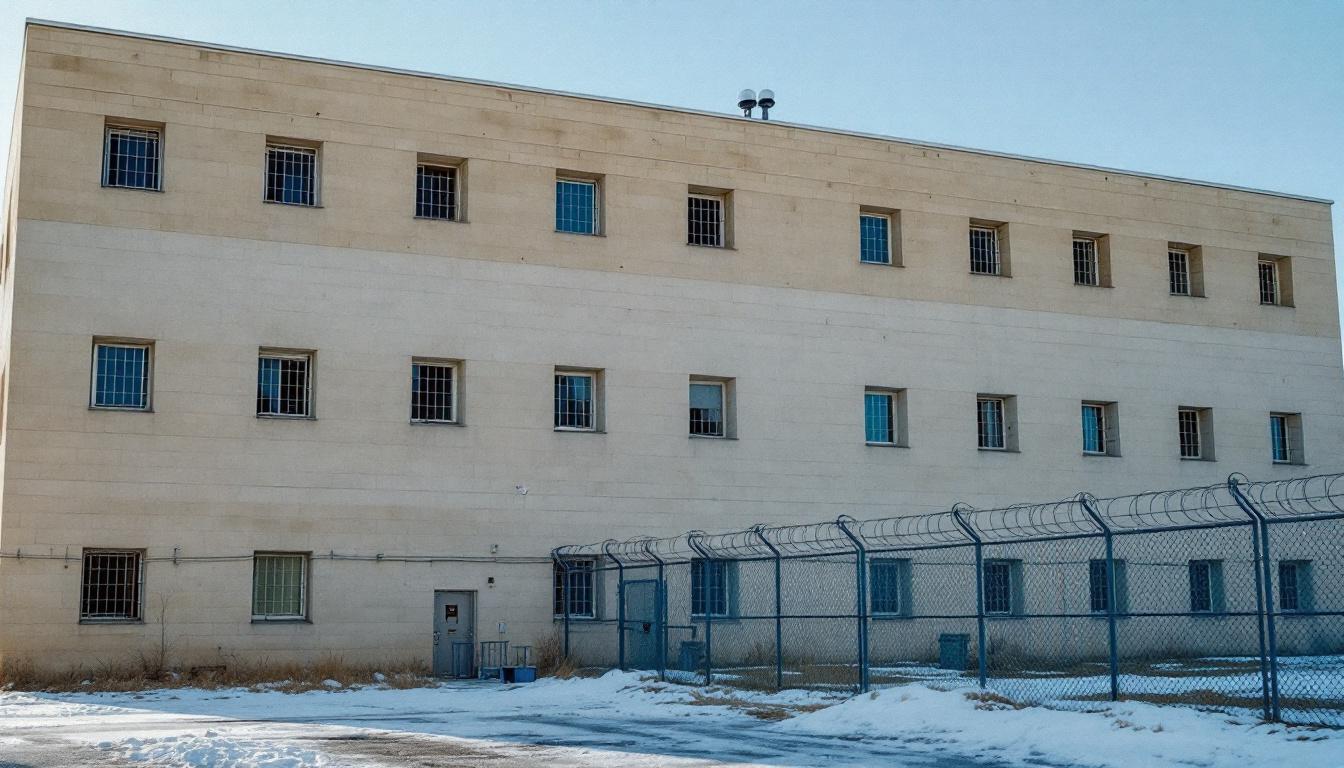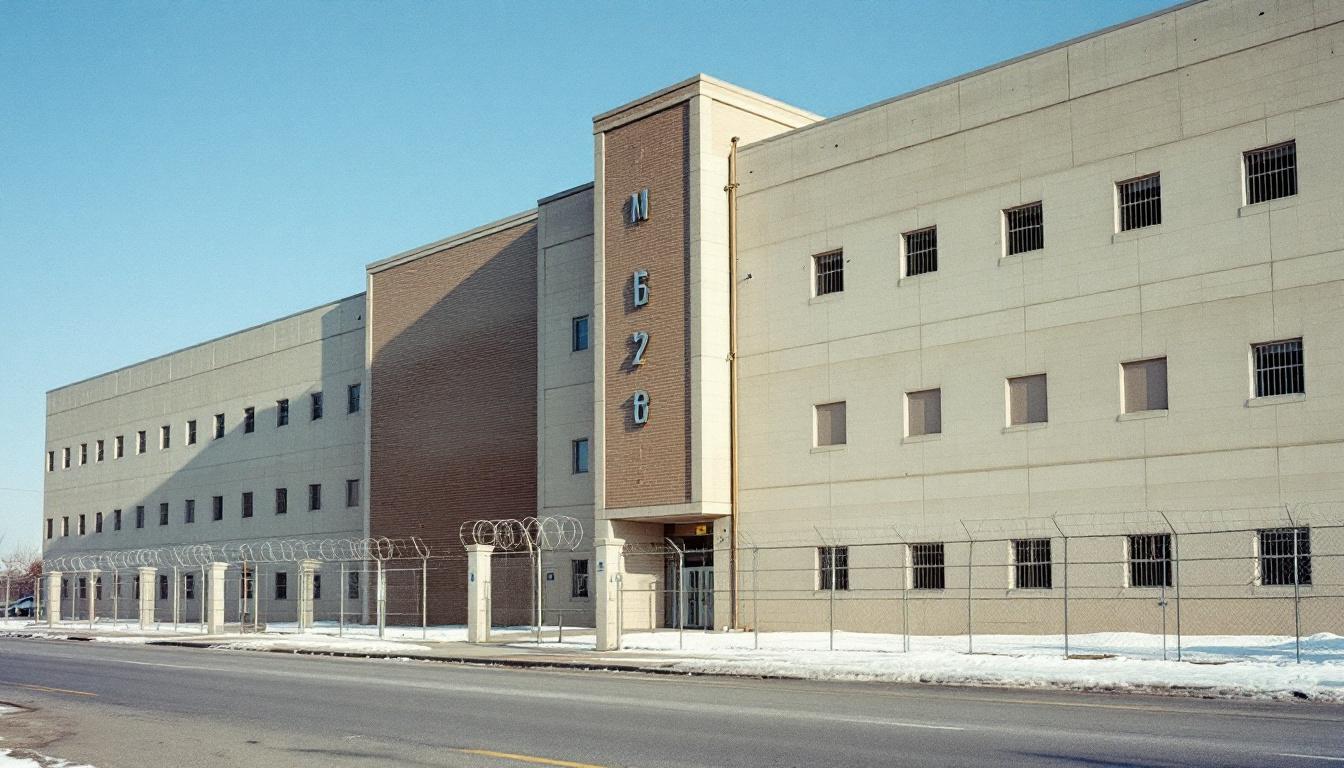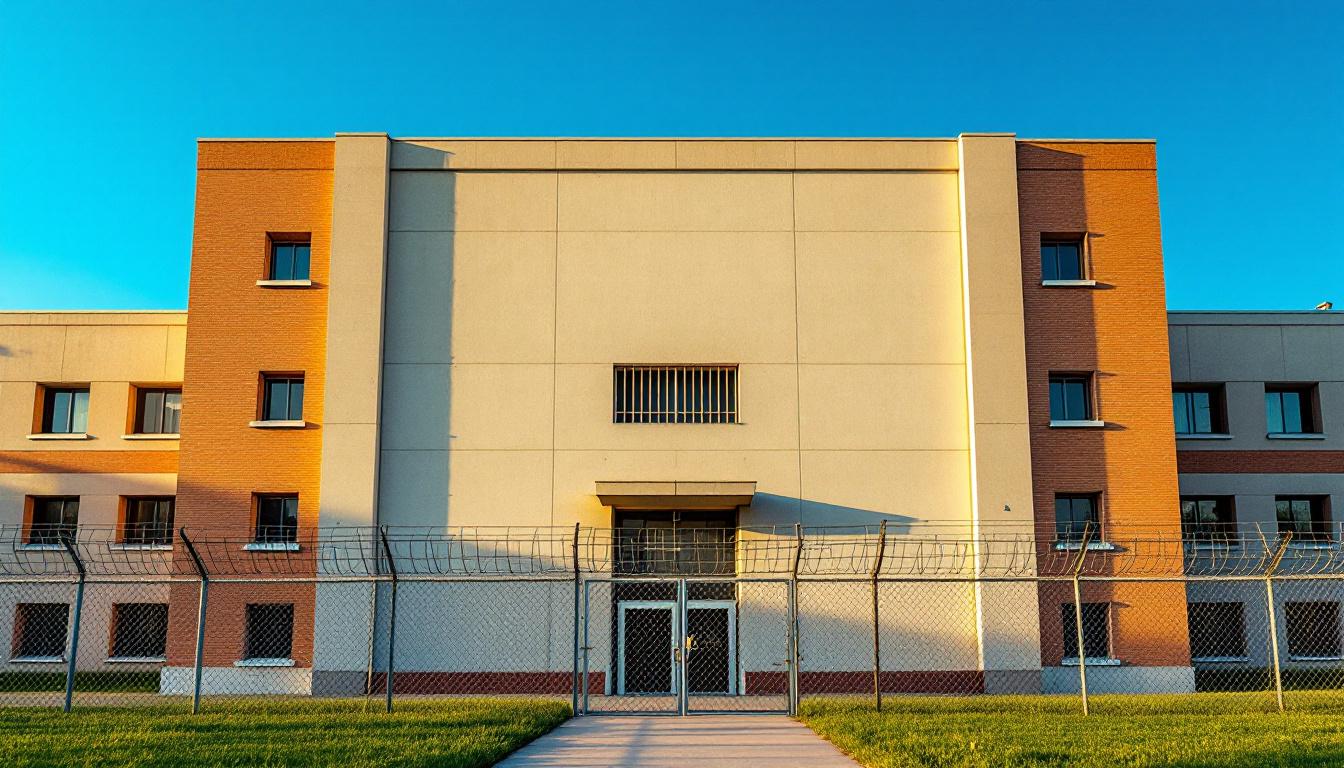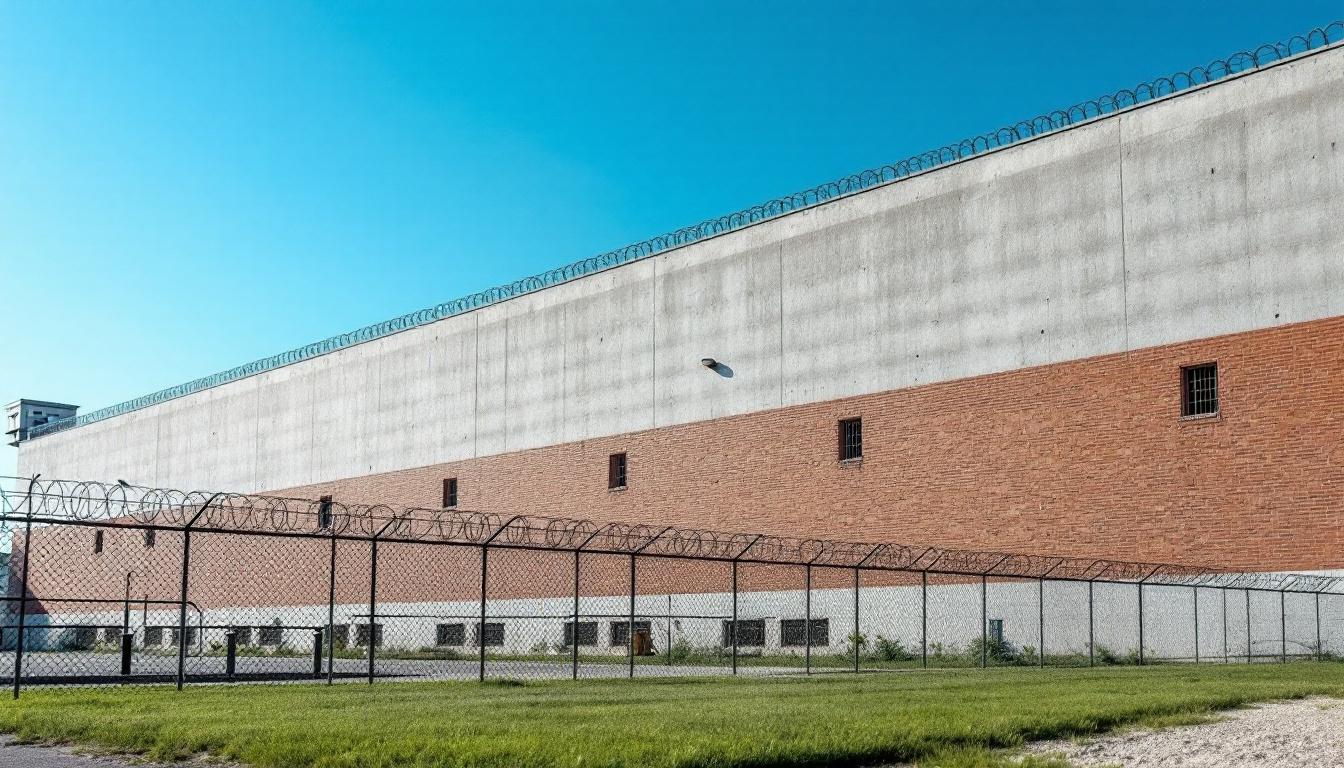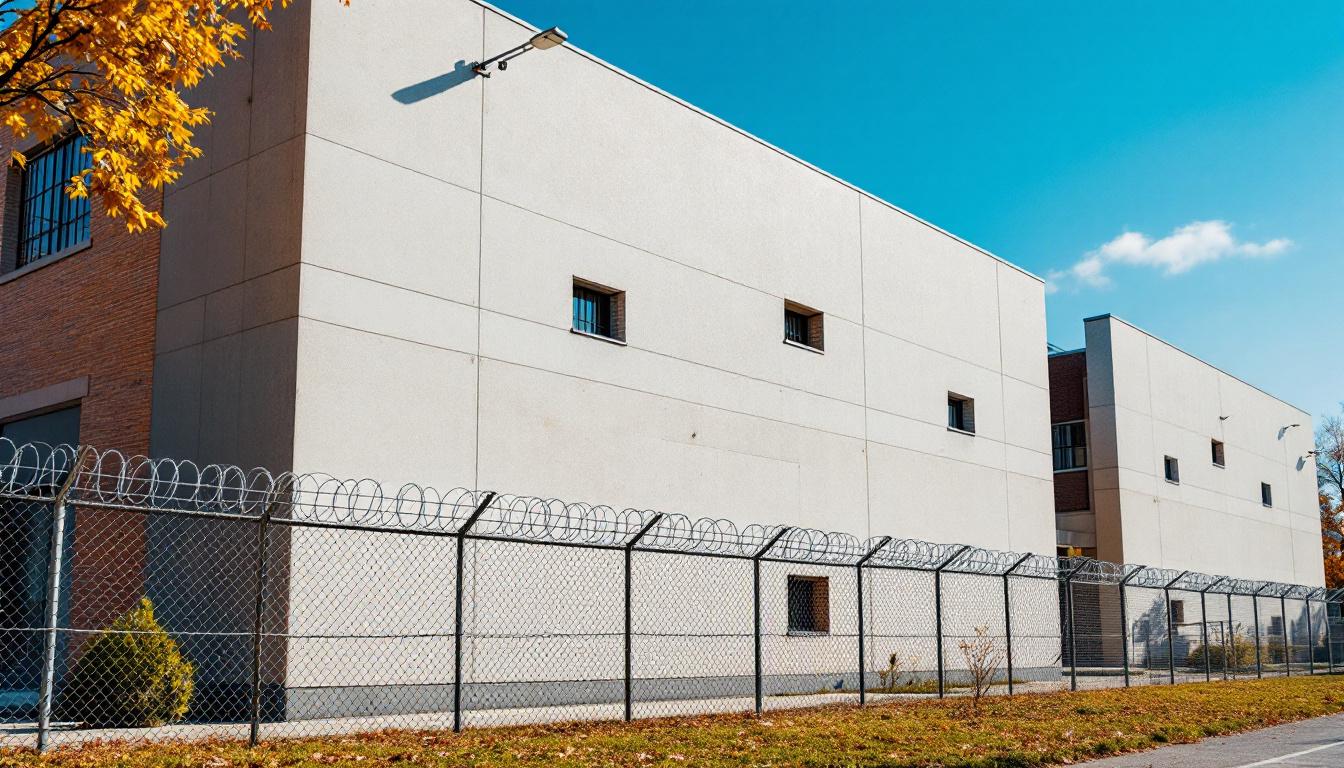
Quick Navigation
How to contact an inmate at Mahoning County Sheriff's Office
This comprehensive guide will walk you through how to connect with an inmate at Mahoning County Sheriff's Office. Follow the steps below to find an inmate and send letters and photos:
- Search for the inmate using our search tool below
- Create your account or log in to Penmate
- Write your message (up to 6,000 characters)
- Send instantly - inmates receive printed copies daily
Find an Inmate
Search for an inmate to start communicating today
Tip: You can search by first name, last name, or inmate ID number
To contact a person at Mahoning County Sheriff's Office start by searching for the person on the official facility website. Perform a search by following these steps:
- Step 1: Enter their first name and last name into the search form and click "Search"
- Step 2: Locate their inmate record
- Step 3: Write down their Inmate ID and any housing information provided
Important! Be sure to enter the person's full name. Nicknames should not be used.
How to Send Messages to Inmates

You can use your phone or computer to send emails, letters, and photos to an inmate. Messages are sent electronically to inmate tablets or kiosks at the facility. If you would like to send a message, start by searching for an inmate at Mahoning County Sheriff's Office.
Sending Photos and Postcards

A great way to send love and support to a loved one at Mahoning County Sheriff's Office is to send photos and postcards. It only takes a few minutes to send photos from your phone and it makes a huge difference. You can also mail postcards with words of support and inspiration, or design your own postcard for special moments like birthdays and holidays.
Important! Be sure not to send any explicit photos or they may not be approved by the facility. You can also use a photo printing app like Penmate to make sure your photos are printed at the correct size (4x6 or 3x5) and are mailed according to the rules and regulations of Mahoning County Sheriff's Office.
Frequently asked questions about Mahoning County Sheriff's Office
-
How long does it take to deliver a message?
If you're sending an email message your letter is usually delivered within 24-48 hours. For messages sent via mail you should expect delivery within 3-7 days. All messages will need be approved by Mahoning County Sheriff's Office.
-
How much does it cost to send a message to Mahoning County Sheriff's Office?
You can send a message free using your phone or mail a message via USPS for the price of a $0.60 stamp and envelope. You can also purchase credits or e-stamps from services starting at $1.99.
-
What services can I use to contact an inmate at Mahoning County Sheriff's Office?
Penmate
You can use Penmate to send letters and photos to an inmate from your phone. It's an easy way to stay in touch during your loved one's incarceration. Use the inmate locator to find an inmate's location and contact information, then you can send messages within a few minutes.
Securus messaging
Securus may be another option for communicating with an inmate at Mahoning County Sheriff's Office. You can create a friends and family account and purchase credits to send messages. All messages will be reviewed and must be approved by the facility.
JPay
Some county jails and state prisons may support sending messages with JPay. You must register an account with the system, find your loved one, and purchase stamps to send messages. For some locations you can also attach photos.
Smart Jail Mail
You may also check if Smart Jail Mail is available at Mahoning County Sheriff's Office. Smart Jail Mail is operated by Smart Communications and has contracted with some state and county jails. After purchasing credits, your messages and photos are sent to the facility, printed out, and then handed out to your loved one.
-
What is the mailing address of Mahoning County Sheriff's Office?
Mailing address:
Mahoning County Sheriff's Office
110 5th Ave
Youngstown, OH 44503
Phone: (330) 480-5000Business hours:
- Monday: Open 24 hours
- Tuesday: Open 24 hours
- Wednesday: Open 24 hours
- Thursday: Open 24 hours
- Friday: Open 24 hours
- Saturday: Open 24 hours
- Sunday: Open 24 hours
-
What are the visiting hours at Mahoning County Sheriff's Office?
Visiting hours at Mahoning County Sheriff's Office vary by housing unit and security level. Generally, visits are scheduled on weekends and holidays, with some facilities offering weekday visits. Contact the facility directly at (330) 480-5000 or check their website for the current visiting schedule. Visits typically last 30-60 minutes and must be scheduled in advance.
-
What items are prohibited when sending mail to Mahoning County Sheriff's Office?
Prohibited items typically include: cash, personal checks, stamps, stickers, glitter, glue, tape, staples, paperclips, polaroid photos, musical or blank greeting cards, hardcover books, magazines with staples, and any items containing metal or electronics. Only send letters on plain white paper with blue or black ink. Photos must be printed on regular photo paper (no Polaroids). Always check with Mahoning County Sheriff's Office for their specific mail policies.
-
How do I send money to an inmate at Mahoning County Sheriff's Office?
You can send money to an inmate at Mahoning County Sheriff's Office through several methods: 1) Online using JPay, Access Corrections, or the facility's approved vendor, 2) Money orders mailed directly to the facility with the inmate's name and ID number, 3) Kiosks located in the facility lobby, or 4) Over the phone using a credit or debit card. Fees vary by method, typically ranging from $2.95 to $11.95 per transaction.
-
Can I schedule a video visit with an inmate at Mahoning County Sheriff's Office?
Many facilities now offer video visitation as an alternative to in-person visits. At Mahoning County Sheriff's Office, video visits may be available through services like Penmate, Securus Video Connect, GTL, or ICSolutions. Video visits typically cost $10-20 for 20-30 minutes and must be scheduled in advance. You'll need a computer or smartphone with a camera and reliable internet connection. Contact the facility for their specific video visitation policies and approved vendors.
-
What identification do I need to visit an inmate at Mahoning County Sheriff's Office?
All visitors must present valid government-issued photo identification such as a driver's license, state ID, passport, or military ID. Minors must be accompanied by a parent or legal guardian who can provide the minor's birth certificate. Some facilities require visitors to be on the inmate's approved visitation list, which may require a background check. Contact Mahoning County Sheriff's Office for specific ID requirements and visitor approval procedures.
-
How can I find out an inmate's release date?
To find an inmate's release date at Mahoning County Sheriff's Office, you can: 1) Use the online inmate search tool if available, 2) Call the facility's records department, 3) Contact the inmate's case manager or counselor, or 4) Have the inmate provide this information during a call or visit. For privacy reasons, some facilities only release this information to immediate family members.
Facility Overview
Contact Information
Mahoning County Sheriff's Office110 5th Ave
Youngstown, OH 44503
Phone: (330) 480-5000
Official Website

About Mahoning County Sheriff's Office
County jails serve as critical components within Ohio's correctional framework, functioning as local detention centers that bridge community safety with rehabilitation objectives. The Mahoning County Jail operates within this essential role in Youngstown, supporting both pre-trial detention and sentenced offender management while maintaining strong connections to regional correctional goals. This facility typically addresses the population services through comprehensive programming designed to facilitate successful community reintegration.
Located in Youngstown's urban landscape, this OH correctional facility generally emphasizes operational approaches that balance security requirements with rehabilitative opportunities. The facility may offer educational programming, substance abuse counseling, and vocational training initiatives that align with Ohio's broader correctional philosophy of reducing recidivism through skill development. Mental health services and medical care typically form core components of daily operations, while visitation programs often maintain crucial family connections during incarceration periods.
The jail's integration with state correctional goals often manifests through collaborative case management practices and transitional planning services. Staff members generally work to prepare individuals for release through various reentry support mechanisms, which may include job placement assistance and community resource connections. These efforts typically reflect the facility's commitment to serving both immediate detention needs and longer-term public safety objectives throughout the Mahoning County region.
Programs & Services
Through a comprehensive network of supportive services, the population at Mahoning County Jail receives assistance designed to address underlying challenges and build essential life skills. These programs typically focus on creating pathways for successful community reintegration while fostering personal growth and accountability. The facility's approach emphasizes practical skill development alongside therapeutic support, recognizing that meaningful change often requires addressing multiple aspects of an individual's circumstances.
Educational initiatives may supply foundational learning opportunities, including literacy programs and high school equivalency preparation that help participants strengthen their academic foundation. Also available are vocational programs that often include job training in various trades, with automotive repair being among the practical skills offered to the population. These educational and vocational services typically aim to enhance employment prospects and provide marketable abilities that support long-term stability upon release.
Support services form a crucial component of the facility's offerings, with recovery services addressing substance abuse challenges through counseling and group sessions. Restorative justice programs may supply opportunities for participants to engage in meaningful dialogue about accountability and community healing. Also integrated into daily operations are food service programs that provide both practical work experience and essential facility functions. Religious services typically offer spiritual support and community connection, creating additional avenues for personal reflection and growth that many in the population find beneficial during their time at the facility.
Daily Life & Visitation
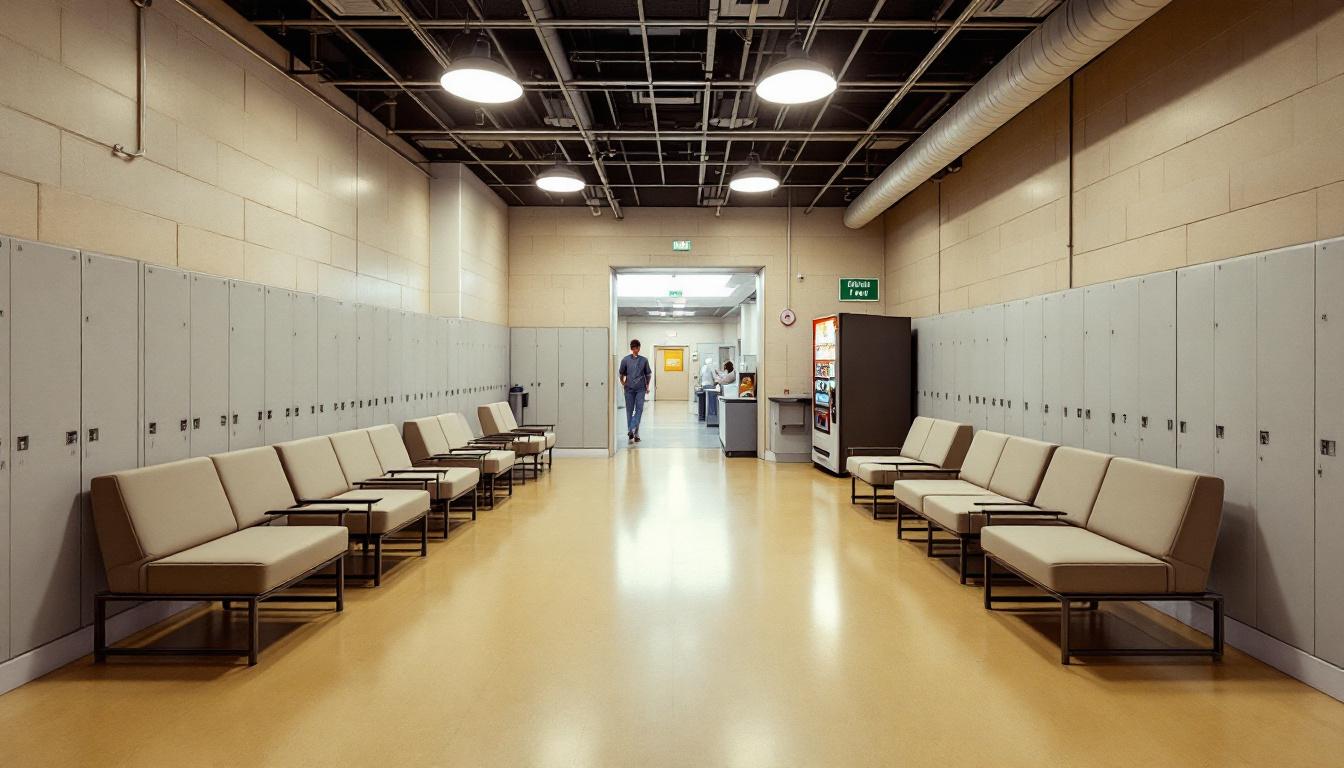
Systematic organization shapes every aspect of life within the facility, with structured schedules that now govern when the population wakes, eats, and participates in various activities. The daily routine typically begins with morning counts and meal service, followed by work assignments or programming sessions that supply meaningful structure to each day. Recreation periods are regularly scheduled to provide physical activity opportunities, while educational and treatment programs operate on set timetables throughout the week.
Housing units at Mahoning County Jail generally accommodate multiple individuals in dormitory-style settings or individual cells, depending on classification levels and available space. The population typically receives three meals daily in designated dining areas, with menu planning that aims to meet basic nutritional requirements. Also, commissary services allow individuals to purchase approved personal items and supplemental food products, helping them maintain some personal preferences within the structured environment.
Programming schedules supply various opportunities for skill development and rehabilitation, including educational classes and vocational training that may be available depending on resources and staffing. However, visitation policies typically allow family members to maintain contact through scheduled visits, phone calls, and correspondence, though specific procedures and frequencies vary based on security classifications. Work assignments within the facility often include kitchen duties, maintenance tasks, and cleaning responsibilities that help maintain daily operations while providing the population with purposeful activities and potential job skills.
Ready to Connect?
Start communicating with your loved one today
Search for an Inmate
